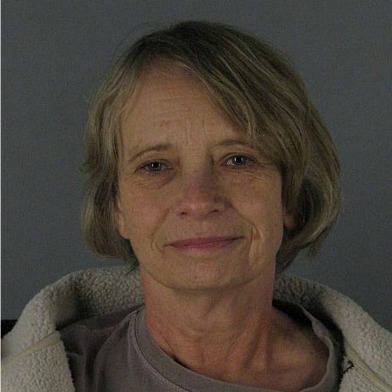 A former technician who was at the center of a scandal at the San Francisco Police Department’s crime laboratory is due to be arraigned in U.S. District Court Wednesday on a new federal charge.
A former technician who was at the center of a scandal at the San Francisco Police Department’s crime laboratory is due to be arraigned in U.S. District Court Wednesday on a new federal charge.
Deborah Madden, 61, of San Mateo, was indicted by a federal grand jury Thursday on one count of obtaining a controlled substance–namely, cocaine–between October and December 2009 through fraud, deception or subterfuge.
The one-sentence indictment does not specify the amount of cocaine taken or give any other details of the allegation.
Madden will be arraigned Wednesday by U.S. Magistrate Elizabeth Laporte in San Francisco. If convicted in a future trial, she could face a sentence of up to four years in prison.
Madden’s alleged theft of small amounts of cocaine from the lab’s drug analysis unit led, along with other problems, to the closure of the facility and prosecutors’ dismissal of hundreds of criminal cases.
In June, she pleaded guilty in San Mateo County Superior Court to an unrelated state charge of possessing a small amount of cocaine found in a search of her Peninsula home in March 2010.
She was ordered to participate in a drug counseling program.
Madden retired in late 2009 after 29 years on the job as a civilian criminalist with the Police Department.
According to interview transcripts released by the department, she told two police investigators in February 2010 that she took small amounts of cocaine spilled from evidence on five occasions between October and December 2009.
But Madden was never charged in the state court system with stealing cocaine from the San Francisco laboratory.
In December 2010, the California attorney general’s office announced it would not file any state charges against Madden in connection with the laboratory because of lack of sufficient evidence.
Madden’s defense attorney, Paul De Meester, said today he didn’t know why federal prosecutors decided to step in.
He said the charge against Madden appeared to be an unusual use of what he called an “obscure” provision of the U.S. Controlled Substances Act.
“They really had to dust off the law books to find this not-widely-used subdivision,” he said.
De Meester said his research thus far suggests the charge of obtaining a drug by subterfuge is not often used and that when it is employed, it is applied against doctors who fraudulently obtain excess amounts of prescription drugs for their own use or for sale.
He said he is considering challenging the charge on the ground that it is not appropriate for the case or on the ground that the case lies outside of Congress’s power to regulate interstate commerce.
De Meester said he doesn’t dispute that Madden told police investigators that she took small amounts of cocaine from the drug unit five times. But he said she admitted only to taking residue amounts that otherwise would have been thrown away.
The federal prosecution “is an incredible waste of scarce resources,” he alleged.
The U.S. law provision makes it a crime for a person to knowingly and intentionally “acquire or obtain possession of a controlled substance by misrepresentation, fraud, forgery, deception, or subterfuge.”
Julia Cheever, Bay City News
Want more news, sent to your inbox every day? Then how about subscribing to our email newsletter? Here’s why we think you should. Come on, give it a try.









